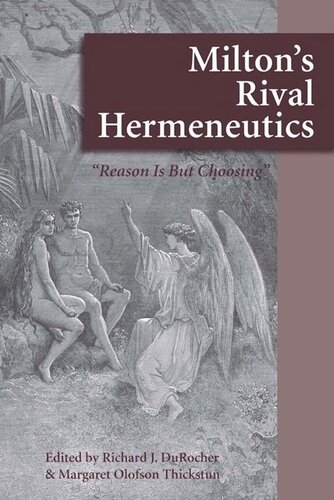

Most ebook files are in PDF format, so you can easily read them using various software such as Foxit Reader or directly on the Google Chrome browser.
Some ebook files are released by publishers in other formats such as .awz, .mobi, .epub, .fb2, etc. You may need to install specific software to read these formats on mobile/PC, such as Calibre.
Please read the tutorial at this link: https://ebookbell.com/faq
We offer FREE conversion to the popular formats you request; however, this may take some time. Therefore, right after payment, please email us, and we will try to provide the service as quickly as possible.
For some exceptional file formats or broken links (if any), please refrain from opening any disputes. Instead, email us first, and we will try to assist within a maximum of 6 hours.
EbookBell Team

0.0
0 reviewsRecent critical conversation has described John Milton’s major works as sites of uncertainty, irreconcilability, or even confusion—as texts that actually reflect radical incoherence and openness. These newer critical voices posit, moreover, that traditional critics must strain to find coherence and authorial control in Milton’s poetry. Richard DuRocher and Margaret Thickstun, together with an esteemed group of Milton scholars from a wide range of critical and theoretical backgrounds, respond to this challenge. While accepting the presence of uncertainty and welcoming the multiple perspectives that Milton builds into his works, this volume offers a variety of nuanced approaches to Milton’s texts.
As these eleven essays demonstrate, Milton’s own acts of interpretation compel readers to reflect not only on the rival hermeneutics they find within his works but also on their own hermeneutic principles and choices—an interpretive complexity that is integral to his poetry’s enduring appeal. Thus, each of the contributors takes up the problem of this interpretive dilemma in some way: several explore Milton’s own engagement with the texts of Scripture and the classics; some examine the ways in which Milton represents the process of interpretation in his narrative poems; and still others are intrigued by the challenges that Milton’s works present for the reader’s own interpretive skills.
Milton’s Rival Hermeneutics, in responding directly to the “incertitude critics” of Milton, will be of interest to those on all sides of this debate and will certainly redirect the ongoing conversation.